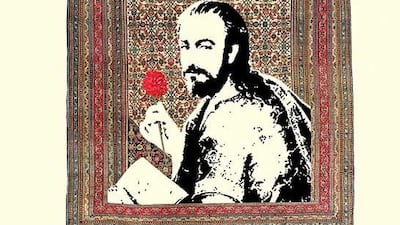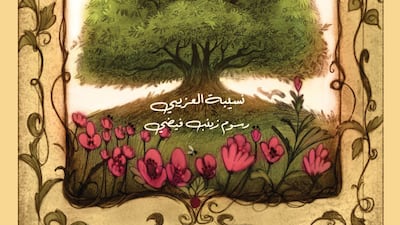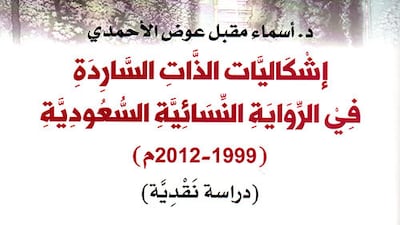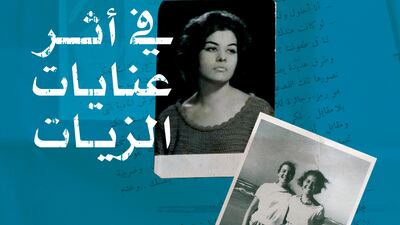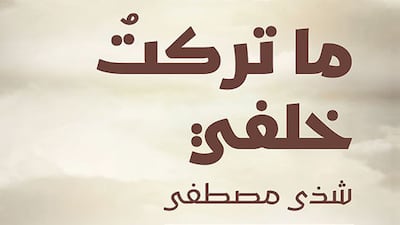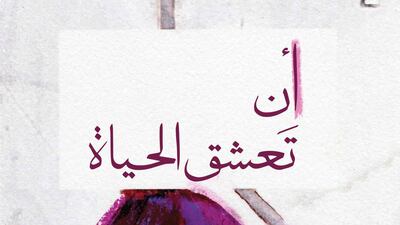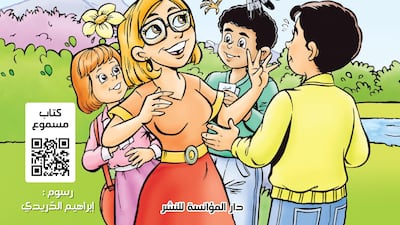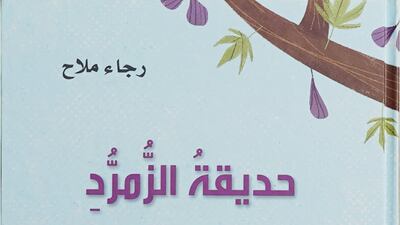Female writers dominate this year’s shortlist for the Sheikh Zayed Book Award, with seven of the nine titles in the running written by women.
Three works are competing in each of the award's three categories. The works are from the UAE, Saudi Arabia, Morocco, Tunisia, Palestine, Lebanon and Egypt.
They were selected from 14 entries on the Young Author longlist, 13 on the Children’s Literature longlist and 12 on the Literature longlist.
Literature Shortlist
‘Aan Ta’ashaq Al Hayat’
Aan Ta'ashaq Al Hayat (To Love Life) is Lebanese author Alawiya Sobh's exploration of a neurological disease she suffered from for four years. Through her protagonist, a dancer by the name of Basma, the author tackles themes of physical and psychological trauma in a work of fiction that is hauntingly ensconced in the corporeal. The novel was published by Dar Al Adab in 2020.
‘Ghorfat Al Mosafreen’
Written by Egyptian novelist, Ezzat El Kamhawi, Ghorfat Al Mosafreen (The Passengers' Room) is a travel journal, a philosophical treatise and a novel rolled into one. El Kamhawi, who won the Naguib Mahfouz Prize in 2012 for his novel Beit El Deeb, confront questions that many of us ponder on while idling in airport waiting areas, about what we are leaving behind and what the future holds. The book was published by Al Dar Al Masriah Al Lubnaniah last year.
‘Fee Athar Enayat Al Zayyat’
Egyptian writer Iman Mersal's novel Fee Athar Enayat Al Zayyat (In the Footsteps of Enayat Al Zayyat) follows the narrator's efforts to ascertain the reason behind the mysterious suicide of Enayat. The novel – published in 2019 by Al Kotob Khan Library – has been described by Egyptian writer Ahmad Jamal Saadeddine as "a rare experiment in the Arabic language."
The Children’s Literature shortlist
‘Al Ghool wa Nabtat Al Olayq’
Emirati author Naseeba Alozaibi's Al Ghool wa Nabtat Al Olayq (The Ghoul and the Blackberry Plant) is an illustrated work that takes readers across a game of emotions as they follow the life of a misunderstood ogre and an orphaned child. The book may be listed in the children's literature category but adults will find much to glean from in this sad and eventually uplifting tale.
‘Hadyqat Al Zomorrod’
Another personable and enchanting story by Moroccan author Raja Malah, who is most famous for her children's book Ajnihat Taerati (Wings of my Plane), Hadyqat Al Zomorrod (The Emerald Garden) explores, through buoyant language and colourful illustrations, the mystical qualities of an emerald garden. The book was published by Dar AlMoualef Publishing and Distribution and Maalem Printing, Publishing and Distribution in 2019.
‘Rehlat Fannan’
Rehlat Fannan (An Artist's Journey) by Tunisian author Mizouni Bannani might be a children's book but it has some topical and pertinent themes related to immigration and the role of an artist in society. The book, published by Dar Al Mua'nasa Publishing in 2020, highlights the importance of practicing the arts to hone empathy and a functional society.
Young Author shortlist
‘Laylat Yalda’
Laylat Yalda (The Night of Yalda) by Egyptian novelist Ghada Al Absi is work of fiction built upon the story and works of the great Persian poet Hafez al-Shirazi. A novel unbounded by time, Laylat Yalda follows al-Shirazi as he meets several important regional poets including Rumi, Ibn Arabi and Ibn Al Farid. The work was published by Dar Al Tanweer in 2018.
‘Ma Tarkto Khalfy’
A heart-rending tale told in fluid journal-like narration. Palestinian novelist Shatha Mustafa's Ma Tarkto Khalfy (What I left Behind) unpacks the divided Palestinian identity as its protagonist travels between Palestine, Lebanon, Sweden and the Philippines. The novel was published by Nofal/Hachette Antoine in 2020.
‘Eshkalyat Al Thaat Al Saredah Fee Al Rwayah Al Nesaayah Al Saudiah’
This entry in the Young Author shortlist is not a novel but a study of literary criticism. In Eshkalyat Al Thaat Al Saredah Fee Al Rwayah Al Nesaayah Al Saudiah (The Problems of the Narrated Self in the Saudi Feminist Novel) Saudi researcher Dr Asma Muqbil Awad Alahmadi examines novels written in Saudi Arabia between 1999 and 2012, highlighting the rise of the female novel during this time period and exploring the themes the works express. The study also enumerates the challenges and difficulties female authors face on an artistic, literary and social level. The 800-page work was published by the Arab Scientific Publishers Inc. in 2020.
Rise in submissions
There was a significant rise in submissions this year in all three categories.
The Young Author category received 646 submissions, an increase of approximately 30 per cent since 2020's award, while the Literature category saw an increase of 33 per cent in the number of nominations, bringing this year's number to 584. The Children's Literature category received 244 entries, an increase of approximately 19 per cent.
The winners will be announced during a virtual ceremony in May, where the recipient of the Cultural Personality of the Year accolade will accept a gold medal and a certificate of merit, as well as a prize of Dh1 million.
Winners of other categories will receive a gold medal, a certificate of merit and Dh750,000 each.
The shortlists for the remaining categories will be announced in the coming weeks.
